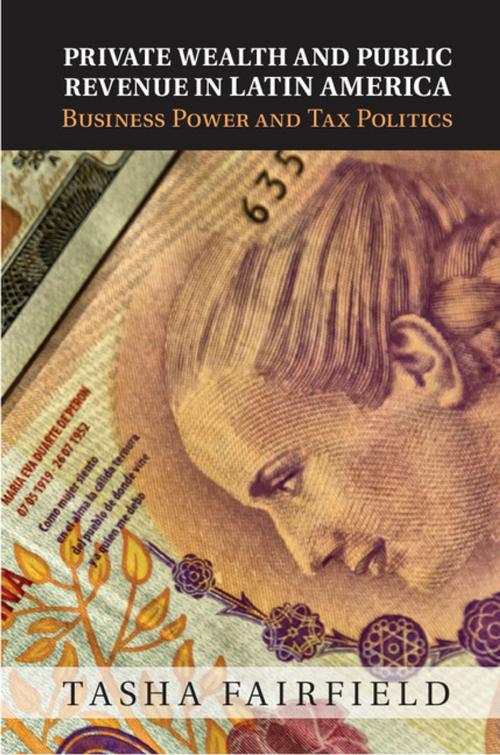Private Wealth and Public Revenue in Latin America
Business Power and Tax Politics
Nonfiction, Social & Cultural Studies, Political Science, Government, Business & Finance| Author: | Tasha Fairfield | ISBN: | 9781316289471 |
| Publisher: | Cambridge University Press | Publication: | March 5, 2015 |
| Imprint: | Cambridge University Press | Language: | English |
| Author: | Tasha Fairfield |
| ISBN: | 9781316289471 |
| Publisher: | Cambridge University Press |
| Publication: | March 5, 2015 |
| Imprint: | Cambridge University Press |
| Language: | English |
Inequality and taxation are fundamental problems of modern times. How and when can democracies tax economic elites? This book develops a theoretical framework that refines and integrates the classic concepts of business's instrumental (political) power and structural (investment) power to explain the scope and fate of tax initiatives targeting economic elites in Latin America after economic liberalization. In Chile, business's multiple sources of instrumental power, including cohesion and ties to right parties, kept substantial tax increases off the agenda. In Argentina, weaker business power facilitated significant reform, although specific sectors, including finance and agriculture, occasionally had instrumental and/or structural power to defend their interests. In Bolivia, popular mobilization counterbalanced the power of economic elites, who were much stronger than in Argentina but weaker than in Chile. The book's in-depth, medium-N case analysis and close attention to policymaking processes contribute insights on business power and prospects for redistribution in unequal democracies.
Inequality and taxation are fundamental problems of modern times. How and when can democracies tax economic elites? This book develops a theoretical framework that refines and integrates the classic concepts of business's instrumental (political) power and structural (investment) power to explain the scope and fate of tax initiatives targeting economic elites in Latin America after economic liberalization. In Chile, business's multiple sources of instrumental power, including cohesion and ties to right parties, kept substantial tax increases off the agenda. In Argentina, weaker business power facilitated significant reform, although specific sectors, including finance and agriculture, occasionally had instrumental and/or structural power to defend their interests. In Bolivia, popular mobilization counterbalanced the power of economic elites, who were much stronger than in Argentina but weaker than in Chile. The book's in-depth, medium-N case analysis and close attention to policymaking processes contribute insights on business power and prospects for redistribution in unequal democracies.















